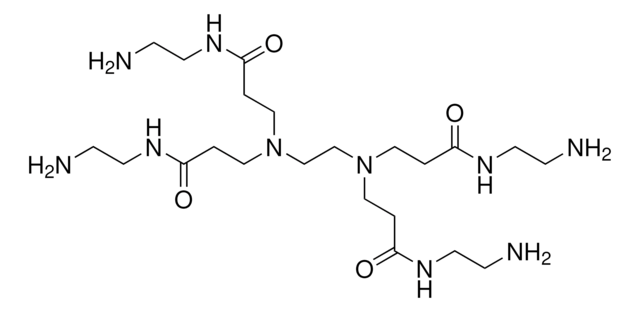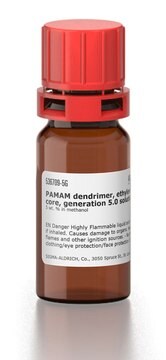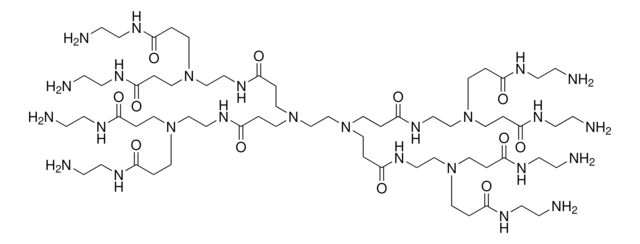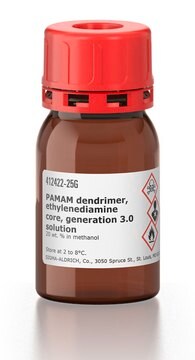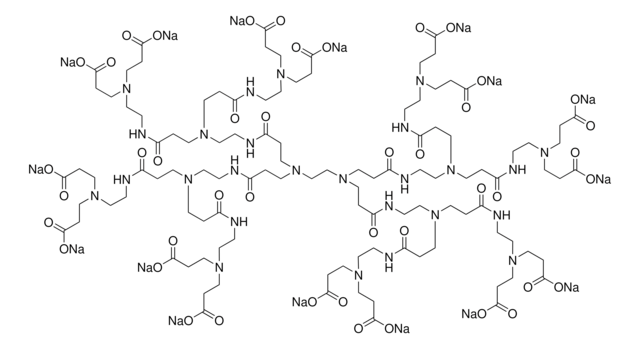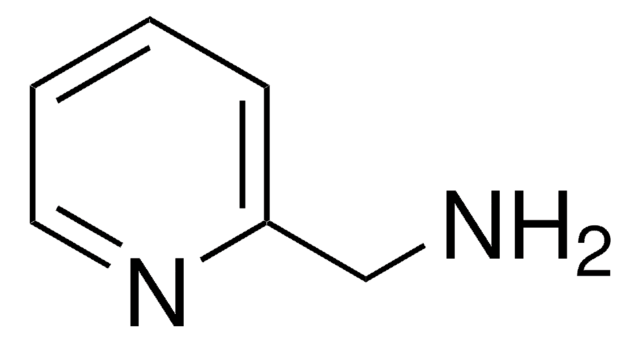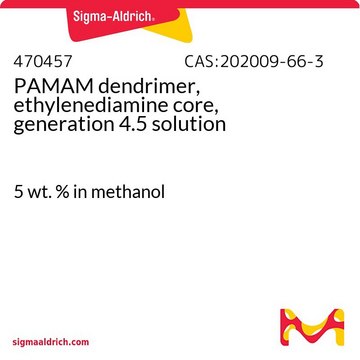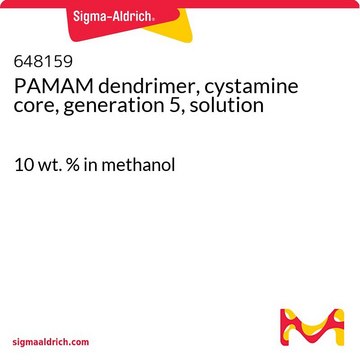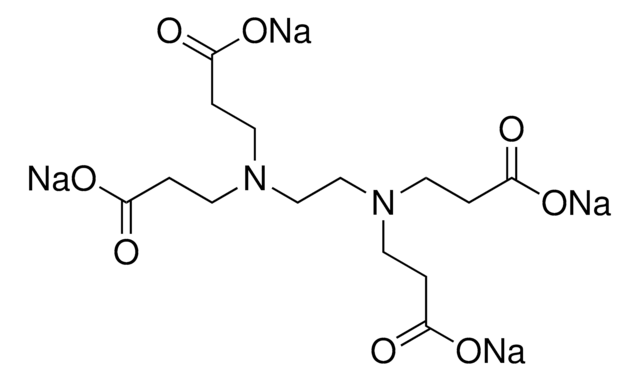412449
PAMAM dendrimer, ethylenediamine core, generation 4.0 solution
10 wt. % in methanol
Synonyme(s) :
Starburst Generation 4
About This Item
Produits recommandés
Description
amino surface groups
Niveau de qualité
Forme
solution
Poids mol.
generation 4.0
Caractéristiques
core type ethylenediamine core (2-carbon core)
Concentration
10 wt. % in methanol
Nb de groupes de surface
64
Indice de réfraction
n20/D 1.348
pb
64.7 °C
Densité
0.813 g/mL at 25 °C
Température de stockage
2-8°C
Description générale
Application
Forme physique
Informations légales
Mention d'avertissement
Danger
Mentions de danger
Conseils de prudence
Classification des risques
Acute Tox. 3 Dermal - Acute Tox. 3 Inhalation - Acute Tox. 3 Oral - Flam. Liq. 2 - STOT SE 1
Organes cibles
Eyes
Code de la classe de stockage
3 - Flammable liquids
Classe de danger pour l'eau (WGK)
WGK 3
Point d'éclair (°F)
51.8 °F - closed cup
Point d'éclair (°C)
11 °C - closed cup
Équipement de protection individuelle
Eyeshields, Faceshields, Gloves
Faites votre choix parmi les versions les plus récentes :
Déjà en possession de ce produit ?
Retrouvez la documentation relative aux produits que vous avez récemment achetés dans la Bibliothèque de documents.
Les clients ont également consulté
Articles
Environmental concerns are driving the replacement of volatile organic solvents by water and aqueous mixtures. This change often creates challenges because many organic molecules show low water solubility.
Notre équipe de scientifiques dispose d'une expérience dans tous les secteurs de la recherche, notamment en sciences de la vie, science des matériaux, synthèse chimique, chromatographie, analyse et dans de nombreux autres domaines..
Contacter notre Service technique